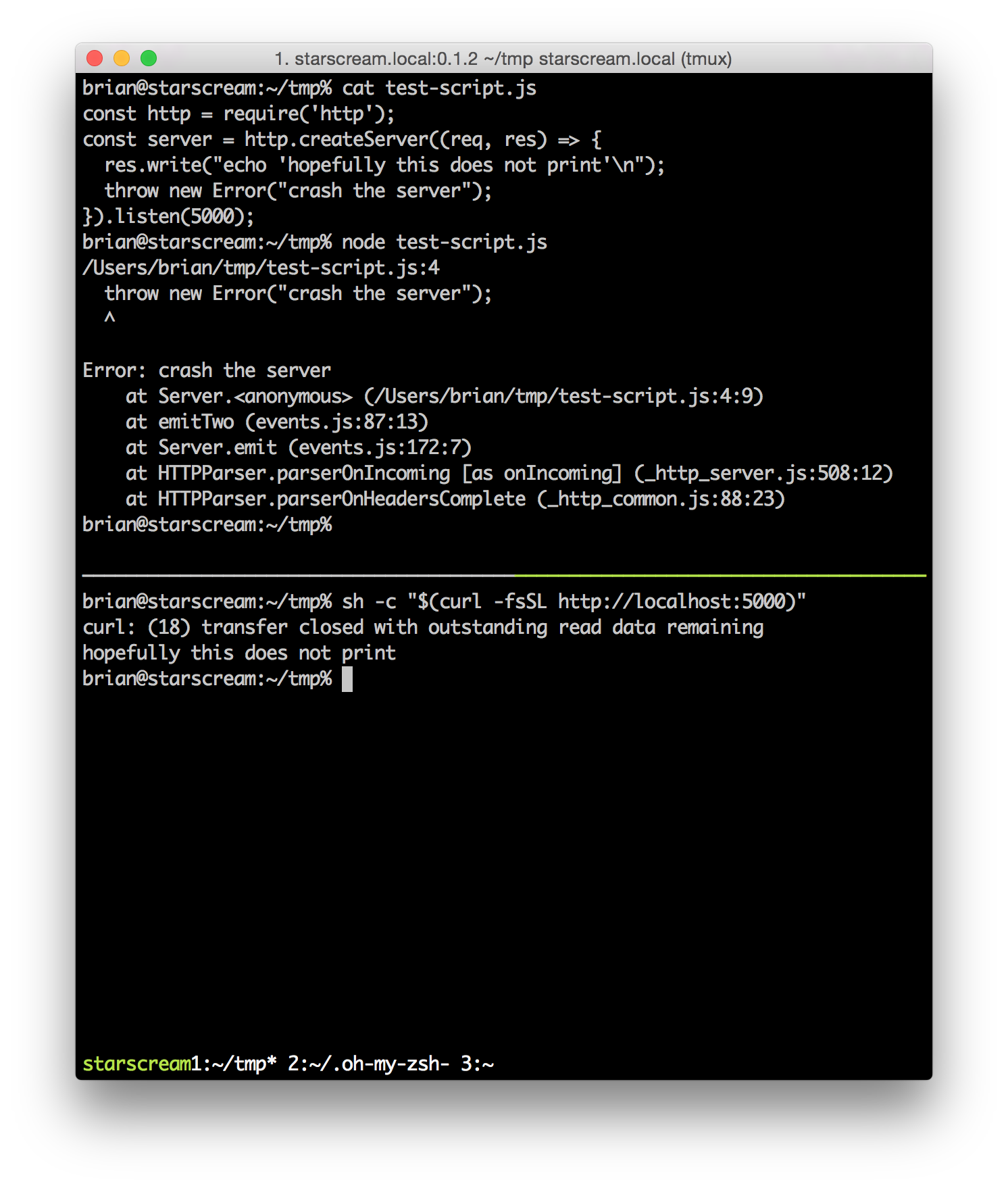Makes the installer more accomodating:
- Allow headless installs (on a fresh system).
- Set $SHELL to the correct value on chsh success.
- Handle edge cases in regards to locating and using zsh.
- Password entry prompt allows user to try again (after bad password).
When the user is asked to update oh-my-zsh it says "[Oh My Zsh] Would
you like to check for updates? [Y/n]:". When the user agreed to update
the next text would say "Upgrading Oh My Zsh" which is inconsistent
with the question.
This changeset wraps all of the commands in tools/install.sh in a
function and then calls that function as the last line of the
script.
The current install instructions ask the user to download the install
script using `curl` and pass the result to `sh`. This is totally
fine (as long as both the instructions and the script itself are served
using HTTPS), but the script should be written in a way such that it
doesn't start trying to actually *do* anything until the very last line.
The reason is due to the way `curl` work: if the socket drops before the
request is complete (server abruptly hangs up, client's internet flakes
out, etc.), `curl` will return the partial data that it received. Here
is an example of that:

A way this might cause issues for tools/install.sh is if the connection drops
after cloning but before the repository (L53-56). The .zshrc
configuration will not be copied and the shell will not be changed, but
if the user tries to run the install script again it will claim
oh-my-zsh is already installed (L31-39).
While this is not a particularly dangerous error condition (the user can
just delete .oh-my-zsh and re-run), it can certainly be confusing for
new users. This also helps future-proof the script for a time when it
might need to use a "dangerous" command, e.g. `rm`, and we want to make
sure it happens in the most transactional way possible.
@fcrozat's original fix assumes `which` not to output anything to STDOUT
in case the command is not found. That is not necessarily true on all
systems. A better solution is to check the return value instead.
Fixes#4376
* Balk at incompatible Windows/MSYS git
* Test for chsh presence before trying to use it
* Replace non-portable `[[ ... ]]` and `[ x = *pattern* ]` constructs
Check if Zsh is installed before installing anything else.
New-commers, or people who don't read the disclaimers(ex. me) will go
straight to stack overflow if chsh -s returns an error.
Installation previously assumed the existence of a "chsh" command in the current
${PATH}. Since Cygwin does *NOT* provide this command, installation now tests
for the existence of this command before attempting to run it.
For safety, a umask of 022 prohibiting both group and other writability is now
enforced during OMZ installation. In theory, this should reduce the likelihood
of subsequent compinit() failures due to insecure directory permissions under
all platforms except for default Cygwin installations (in which Windows ACLs
override POSIX umasks).